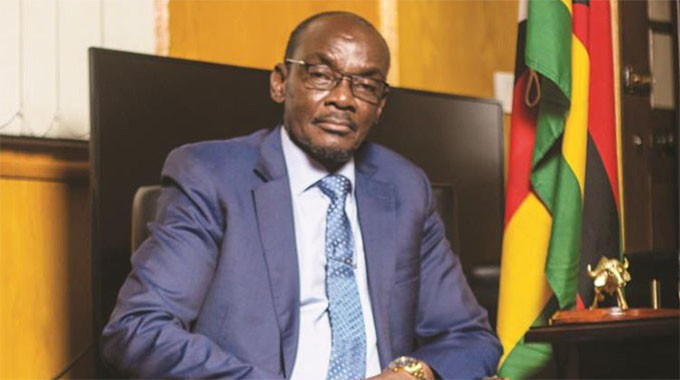
THERE is a collective groan that echoes through the kombis of Harare and the WhatsApp groups of Bulawayo. It is a sound of weary resignation, a sound that has become all too familiar.
This time, its source is the new ZBC radio licence tax. Citizens are being asked to fund a state broadcaster that, for many, serves as little more than background static — a party they were never invited to and would not attend even if they were.
This latest fiscal extraction has pushed a simmering frustration to a boil, forcing us to ask more profound questions than just “why this tax?”
We must ask: Does our government truly need our taxes to finance public goods?
And are these endless, creative new levies the right way to go about it?
The answers may surprise you.
The government is not a household
Let us start with a foundational truth that shatters conventional wisdom: The government is not like a household. You and I must earn an income before we can spend. We budget, we save, we hope there’s enough left for a treat at the end of the month.
- Feature: The inevitable return of the greenback
- Econet introduces ‘Smart US Dollar bundles’
- Paltry US$11m traded on auction market
- US dollar minimum wage a compromise, starting point
Keep Reading
A government that issues its own currency operates on a completely different plane. It is the sole issuer of that currency. It can, and should, spend first and tax later. This is not a radical idea; it is the reality of modern monetary systems.
When the government spends on infrastructure, healthcare, or civil servant salaries, it creates the very currency that then circulates in the economy.
So, what is the point of taxes? Taxes are redemptive. Their primary purpose is not to "fund" the government, but to create a demand for its currency, thereby giving it value.
We all need the national currency to pay our taxes, so we work for it, sell goods for it, and accept it as payment. Taxes are the anchor that stops the currency from floating away. They are a tool to manage inflation, influence behaviour, and ensure the currency is sought after.
This brings us to Zimbabwe's core handicap. Our government primarily levies taxes in a currency it does not issue and cannot control: the US dollar.
By doing this, it voluntarily demotes itself. It becomes just another household, anxiously looking for US dollars to fund its budget. It is a giant handcuffed, forced to take grandma's last dollar from her remittance envelope just to keep the lights on.
The solution is not to find more things to tax in USD. The solution is to strategically and credibly re-establish a sovereign Zimbabwean currency. Imagine if a new currency were introduced not by decree, but through a job guarantee programme, paying anyone willing and able to work.
This would immediately create jobs, generate demand for the new currency (as people need it to buy goods from these newly employed workers), and stabilise its value from the ground up, curing many of the ills currently afflicting the ZiG.
Taxing smarter, not harder
This leads to our second question: What are the effective ways for a government to tax its citizens? There are essentially only three things a government can tax:
What we earn (income, corporate profits, capital gains)
What we buy (consumption, through sales tax or VAT)
What we own (wealth, through property and inheritance taxes)
How well is Zimbabwe doing at tapping these fundamental bases?
Poorly!
The base for taxes on earnings is perilously small. The percentage of Zimbabweans formally employed, whose income can be taxed at the source via PAYE, is a fraction of the population – less than 30%. The same goes for corporate income tax.
The bigger story is in what we buy. Zimbabwe has a vast and vibrant informal economy.
According to the International Monetary Fund, this sector could account for over 60% of our entire economy. Everything from the breakfast fat cook on the corner to the construction materials for a new suburban home is increasingly supplied by this thriving ecosystem. And almost none of it is captured by sales tax.
Herein lies the great policy failure. Instead of focusing on broadening these two powerful tax bases, the government invents nuisance taxes on the already overburdened formal sector and the general populace.
The path to a wider tax base is not more taxes; it is more taxpayers. The focus should be on creating formal employment — as a job guarantee would — and fostering conditions that allow our brilliant entrepreneurs to formalise and grow their businesses.
When people have formal jobs and businesses, they pay income tax, and their sales are captured for VAT. The tax base expands naturally.
Our currency, our culture, our future
The government does not need your last dollar to spend. It needs to recognise the immense power it holds as the issuer of a national currency.
Taking money from citizens just to spend it back into the economy is like a water utility borrowing water from its customers to fill the reservoir.
To those who argue that we must cling to the US dollar until we achieve middle-income status, I offer a reality check. While the dollar provides a temporary, if painful, stability, it is a crutch that prevents our muscles from ever growing strong.
We can never truly develop, innovate, and uplift our communities while our government is barred from using its most powerful tool for development — a robust, trusted, and valued Zimbabwean currency.
A nation’s currency is more than just money. It is a core institution, a piece of our collective culture, a symbol of our sovereignty. It is a responsibility that cannot be outsourced forever. It is time to bring it home.
The strength of a nation is not in the coins it borrows, but in the courage to mint its own.
- Nota is an economist, public health advisor and a compliance and ethics professional. He is the founder and CEO of Navala Global. In the past he served in academic and policy roles in the United States. These weekly New Perspectives articles published in the Zimbabwe Independent are coordinated by Lovemore Kadenge, an independent consultant, managing consultant of Zawale Consultants (Private) Limited, past president of the Zimbabwe Economics Society (ZES) and past president of the Chartered Governance & Accountancy Institute in Zimbabwe (CGI Zimbabwe).— +263 772 382 52.






